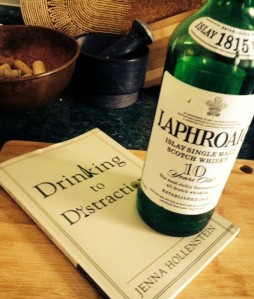April was a bitch, and so was I. For much of it I felt as if I was in a communication black hole and this was intensely distressing. A glimpse into the last few weeks:
- Text messages and emails from friends were never received
- Posts on professional and personal Facebook pages vanished without a trace
- I received some surprisingly harsh criticism of my book – was called cruel and inhumane – and could honestly not understand why
- I anticipated giving a much-dreaded talk to an audience of my peers, for which there were many unknowns
- We had house guests for 3 weeks, all of whom spoke a language I’m studying but in which I am not fluent, meaning it was never 100% clear if we were understanding one another
- A friend with whom I was developing a workshop severed our relationship with nary an explanation, just a pseudo-spiritual quip
At the same time, wonderful things happened:
- Those same house guests were people I love deeply and felt lucky to spend time with; I enjoyed sharing many quintessential New York and American experiences with them
- I began working with a wonderful business coach and started to take the next steps in building my business, one of which is getting comfortable with public speaking (oh, and the talk went fine)
- Several clients experienced important breakthroughs in their work with me
- I received an email from someone who had read Drinking to Distraction and was helped by it
- A woman I met at another nutrition talk I gave decided to stop drinking as the result of a conversation we had (and now has several weeks sober!)
- My parents spent an enviable 10 days in Paris and had the time of their lives
- I spent a weekend with my beautiful sister and nieces, who just adopted a 10-year-old miniature poodle
- I made a wonderful new friend of the no-BS variety
- A friend with whom I was developing a workshop severed our relationship with nary an explanation, just a pseudo-spiritual quip (think I dodged a bullet here)
Though my formal meditation practice waned during the month of April – all of the “not knowing” drove me away from my practice rather than toward it – I was intensely aware of the ups and downs as they occurred. But I felt a greater allegiance to the stressful aspects of that time – the ways in which I, ME, MYSELF was suffering. I experienced a form of anxiety that was deeply physical – feet feeling as if they weren’t touching the ground, stomach in knots, zero appetite (beyond rare for me), a light-headedness that at times felt as if I might just lose it altogether.
Uncertainty is something I continue to grapple with. Intellectually, I get the concept – I might even be able to speak on the topic with an air of confidence and comprehension. But the actual experience of uncertainty – not being sure if someone has understood me, not knowing whether I did something to bring about a negative outcome, not having exclusive access to the cocoon in which I hide – can be distressing to the degree of questioning my sanity.
I heard myself say more times than I’d like to admit (using both my inside voice and my outside voice), “I could really go for a drink right now.” The degree of discomfort uncertainty provoked created a deep desire to obliterate myself and completely disconnect. One morning I even found myself chugging a kombucha (something I already had mixed feelings about due to it’s 0.5% alcohol content) wishing it were a fizzy cocktail.
I went to a handful of AA meetings and couldn’t stop crying. I felt drawn in by the copious one-liners and promises of peace. I have always left the door to “the rooms” open. Though it has not been part of my recovery so far, as I approach 7 years, I am more than willing to incorporate the fellowship if that is what I need to maintain my sobriety.
But while I feel desperate for that level of certainty, I’m also suspicious. I wonder if the solution is finding more certainty or becoming better at tolerating the uncertainty. This is a question for anyone who regularly attends meetings, particularly those who have also used meditation to support their recovery.
As I have settled back into my practice, I have also been rereading some of my favorite dharma books. Not surprisingly Pema Chodron’s Comfortable with Uncertainty was my first stop. On turning arrows into flowers, she writes:
Devaputra mara involves seeking pleasure. Any obstacle we encounter has the power to pop the bubble of reality that we have come to regard as secure and certain. When we’re threatened that way, we can’t stand to feel the edginess, the anxiety, the heat of anger rising, the bitter taste of resentment. Therefore, we reach for whatever we think will blot it out. We try to grasp something pleasant. The way to turn this arrow into a flower is to open our hearts and look at how we try to escape. We can use the pleasure-seeking as an opportunity to observe what we do in the face of pain.
Where I go from here I don’t know yet…cue the uncertainty-related anxiety. Do I begin to incorporate the AA fellowship into my sobriety? To try to find like-minded others on that ill-defined path of recovery, meditation, and meetings? Trust that there is so much more to the program than the catchy phrases and free coffee?
Will the pain of not knowing drive me to wake up or go to sleep?



